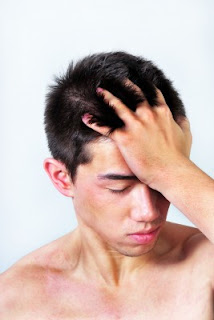Yearly, a quarter of the population undergo emotional trauma
due to crisis or personal tragedy. A loved one could get sick or pass away, you
may be sued or lose your job. There could be heavy financial concerns or be
constrained to relocate. Your marriage could break up. You could be one of
millions of people who experience grave clinical depression; or you may have
gone through some emotional hurt in childhood that greatly affects you. More
than half of children come from divorced marriages or dysfunctional families
and a lot of others would have lived seeing their parents' divorce before
turning twenty-one.
How can you protect yourself during these emotionally
traumatic times? Here are some strategies for dealing with stress and emotionaltrauma. All the same, what if it's just unbearable? Do you have a particular
problem that is difficult to discuss with your friends and family?
Each individual can benefit from being emotionally fit, and
every person goes through experiences that affect his or her emotional welfare.
Do not hesitate to ask for professional help to provide you emotional trauma
therapy. A counselor, therapist, psychologist, church minister, or psychiatrist
can impart guidance and insight. The negative stigma associated with seeking
professional help could hurt everyone. Thankfully, the past two decades saw a
noticeable shift in the manner we regard mental health. Seeking professional
help has become an accepted trend.
Mental health is a complicated issue because denial could so
oftentimes serve a potent role, keeping the individual from getting the
assistance he or she needs and deserves. That's why individuals who live with
an alcoholic will likely notice the problem than the alcohol-dependent person
by himself or herself. A couple of mental and emotional conditions have a
physiological factor likewise as a psychological one. For example, the variants
among clinical depression cases are determined according to the chemical
changes that happen in the brain's hormones. Medications can help treat these
conditions. Common medicinal drugs involve the selective serotonin reuptake
inhibitors (SSUls), like Prozac, citalopram, paroxetine , and sertraline, and
another group of antidepressants, the most typically prescribed being
bupropion. One drug may induce side effects in a patient while some other drug
of a similar kind won't. Frequently, emotional events could activate the
biological response, and, while a pill can alter the biochemistry of the brain,
it could not fully alter the emotional tensions that may have initially
activated the depression.
Psychotherapy could also aid in treating emotional trauma.
Two forms of counseling are interpersonal and cognitive/behavioral therapies.
The goal of interpersonal therapy is to help you understand the symptoms of
emotional trauma. Cognitive/behavioral therapy identifies behaviors that
perpetuate the depression and seeks to program behaviors to prevent further
depression. Generally, talk therapy and drug therapy when combined, work best.
© 2011 Tip Writer



